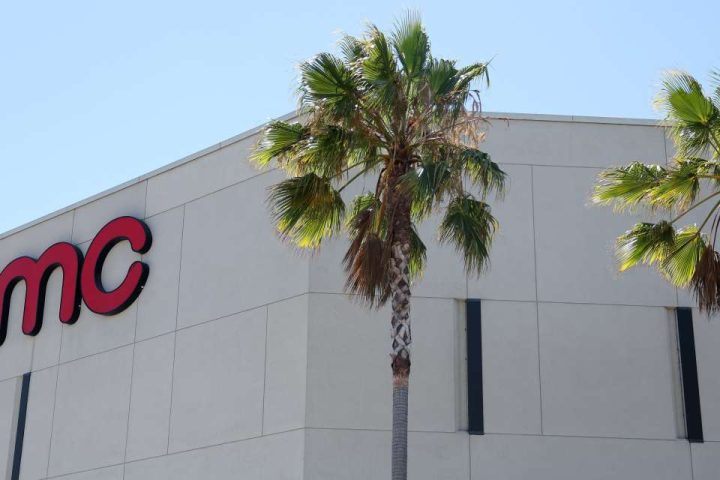Way too many financial writers have been decrying this market “pullback” we’ve seen in the last few months … but they’re entirely missing the point.
The “boring” truth is that what we’ve been seeing is nothing more than a transition from a panicked market to a more normal one. That’s the kind of setup the drama-fueled press hates—but we income investors love.
After all, in a “normal market,” we can buy our favorite high yielders—and there are plenty out there trading at bargain prices right now—without worrying about “losing our dividends” to price declines.
How do I know we’re shifting to a more normal market? Simple: as we always do at my CEF Insider service, which focuses on investing in high-yielding closed-end funds (CEF), we ignore the hype and focus on what the data is telling us.
And the data is crystal clear. Stick with me for a moment while we rattle through the numbers.
What you’re not hearing much these days is that US economic growth already rebounded in late 2022, when real GDP growth (or GDP growth after accounting for inflation) accelerated from 0.7% to our current 2.4%, which is around the average growth rate we’ve had going back 20 years.
In other words, we’re going back to normalcy after the pandemic. And even though no one wants to, we still need to talk about the pandemic, because its effects are still being felt. The huge injection of cash into the market we saw in 2020 caused 2021’s overvaluations that, in turn, caused 2022’s overselling that, in turn, caused 2023’s strong (but still incomplete) recovery.
The world is slowly healing itself. You’re probably seeing that in your neck of the woods (I know I am), and it’s no different in capital markets. The financial system has worked through the pandemic and we’re going back to a normal world.
But what is a normal world, and how do you invest in it?
Investing in a “Normal” World
Normal is boring, so this market is really tough for the financial press, which tends to turn any little blip of data into an apocalyptic event to attract clicks.
The truth of the matter is far from dramatic: Markets simply rose a little too much, too fast, then went down a little too much, and now they’re—kind of back to where they should be.
This is simply what happens in uncertain times. And a global pandemic is awfully uncertain! Now that it’s over, though, the S&P 500 is up an annualized 8.2% per year since the start of 2020, which is very close to the 7.9% annualized return it has delivered over the last 30 years.
The key takeaway is this: With the S&P 500 now at its historical norm, more or less, there’s little reason to see risks in stocks—and many reasons to invest in the long-term trend stocks have shown in both high- and low-interest-rate regimes.
Of course, the chart above showing the big (and long lasting) downward swing of 2022 would make anyone cautious. And that’s why a CEF like the Nuveen Core Equity Alpha Fund (JCE) is especially appealing these days.
JCE yields 10.4% and generates that payout in a couple of ways. First up, it holds large cap US stocks and uses gains and dividends from those stocks to support its massive payout.
There’s a tilt toward tech names, which are particularly undervalued now, in its top-10 holdings, which include Microsoft
MSFT
AAPL
JNJ
BRK.B
Second, JCE generates extra income by selling call options on its portfolio. This is a great way to generate income because whether or not JCE winds up selling its stocks to these option buyers (and it’s less likely it’ll have to in a flat or falling market), it keeps the premiums it charges them for these options.
The nice thing here for dividend investors is that JCE’s market price has been rangebound for over a decade, giving its shareholders a nice floor from which to collect their dividends.
Just from this chart alone you can see how in 2012, for instance, one could buy when the fund was down and wait a couple years to sell for a 41% return—and that’s on top of JCE’s double-digit yield!
Similar profits were up for grabs after JCE slumped in 2016, as well as in 2019 and 2020. In fact, these opportunities to buy low happen so often it’s kind of crazy how the opportunity has appeared yet again.
And when we factor in dividends, though, JCE’s returns get really interesting.
JCE’s outsized payouts mean investors earned a whopping 10% annualized return over the last decade. Not only has this fund been a powerful profit generator for shorter-term traders—it’s delivered the goods for long-term income investors, too.
Ironically, when the market was crashing in late 2022, investors saw the opportunity in JCE and priced it at a premium to net asset value (NAV, or the value of the stocks it holds). Now that the market is fully into its recovery, the premium has flipped back to a discount, where it’s remained for a long time—since the banking “mini-crisis” of March, to be exact.
This is unprecedented for JCE, but it also reflects one other fact: that fear the financial press has put into the public has kept retail investors on the sidelines, keeping CEFs like this one artificially cheap. I think we can agree, after all, that we’re in much better shape economically than we were back in March.
That is, after all, what the facts are telling us: the market’s rebound has shown strength, inflation is falling, and even the Federal Reserve has said it’s likely at or near the end of its rate-hike cycle. Now, in other words, is the time for us to invest in normalcy—and JCE, with its discounted 10.4% dividend, is a smart way to do so.
Michael Foster is the Lead Research Analyst for Contrarian Outlook. For more great income ideas, click here for our latest report “Indestructible Income: 5 Bargain Funds with Steady 10.2% Dividends.”
Disclosure: none
Read the full article here







